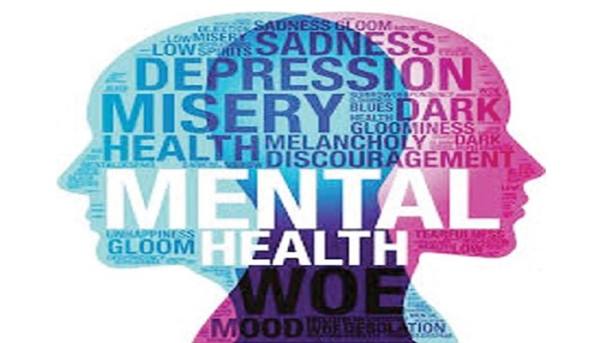The Country Director, Secure-D-Future International Initiative, Chinaemerem Iwuanyanwu, has said mental health challenges in Nigeria are significant, marked by limited access to services and a lack of social awareness and an inadequacy of mental health professionals.
According to research, approximately 25-30% of Nigerians experience mental illness, but less than 10% have access to professional care.
It is in an attempt to bridge this gap, which is attributed to societal attitudes that hinder access to treatment, hence the Secure-D-Future International Initiative; a Non-Governmental Organization has held its 4th Annual Counselors Summit and unveiled its Mental Health Guideline framework, at a Two-Day event, themed: “Bridging The Gap: Integrating Counseling Into Mental Health Policies; Opportunities & Challenges.”
At the event in Abuja, which had participants from schools, communities, partners and stakeholders from across the country, Iwuanyanwu disclosed that the fourth annual counselling summit is a gathering of school counselors, private practitioners, private workers including policy makers who have come together in order to upscale themselves, and have conversations that border on the practice and the services that the association offers.
According to Chinaemerem, the key highlight of the event is the unveiling of the guide on “effective mental health counseling”, bridging the mental health gap in Nigeria.
She revealed that the production of the book was the work of a number of professors and doctors, who are professionals in mental health.
“The idea behind it is for every social worker and counselor including policy makers to have that required understanding on; what do I need to do, as a counsellor.”
She further revealed that findings and interactions of the SDF in schools have shown that some people do not pay adequate attention to issues relating to mental health as they focus more on ‘career counselling’.
In her words, “There is no way that you can separate mental health from career counselling. There is no child with mental health issue that can do well academically. This is a fact.”
She further revealed that, “The Association, in partnership with the Secondary Education Board, SEB (and with particular reference to the FCT Education Board) including the Counseling Association of Nigeria has been trying to develop a lot of capacity building programmes to bring them up-speed. Stating, that the purpose is to make them understand that counseling is good but one must pay attention to the mental health of these children.
“‘With this guide we have developed, as a school guidance counselor, they are now well equipped as to what is expected of them,” she stated.
Speaking earlier at the event, Dr. Sada’atu Adamu, the Founder of Secure-D-Future International Initiative (SDF), revealed that the SDF initiated the establishment of mental health clubs in the various schools where it caters for individuals; especially students that are struggling with mental health and challenges, so that they can get used to it, enjoy their space and in the same vein, equip themselves on how to provide support to others.
The SDF founder noted that not all mental health issues require medication, psychiatric hospitals and all sorts.
She said, “Counseling is one of the major things that we have to look at and also, integrate into the mental health frame work. One cannot do much as it concerns mental health without counseling.”
She mentioned also, that the SDF has rehabilitation centres where it caters for people struggling with drug use/abuse, and an institution where professionals are trained on the basic tools and techniques on how to support people with mental health. “What you are seeing today, is part of what we bring onboard as an organization”.
Reacting to questions on how the SDF is working alongside its partners and collaborators to address “bullying in schools”, for which the Minister of Education recently inaugurated a committee on Bullying in Schools, Dr Adamu disclosed that the SDF has been working with the Secondary Education Board on the policy. “We are also part of the consultants that supported them through the training on “Understanding the Impact of Mental Health around Bullying”.
In his address, Prof Malami Umar Tambawal, the Vice Chancellor of the Shehu Shagari University of Education, Sokoto, noted that addressing the issue of mental health requires the collective effort of all, including the government.
“We have to make it a policy if we want to be serious. This is why the SDF is coming up with the mental health policy framework so that with this document, the issue of mental health can be redressed in all of our educational levels.”
He disclosed, that the Association is working tirelessly through various schools counselors to see that the issue of mental health in the country gets the attention it deserves.
“The Association has been having conferences and seminars on issues of mental health but presently, “we want to go down the grassroots levels and visit various secondary schools, tertiary institutions to address individuals with this mental health issue.
“There are issues relating to mental health everywhere in the society today especially with the economic situation in the country as it has also affected our cultural disposition, which has changed.
“The society has to re-orient towards thinking right. The SDF remains committed towards the implementation of this policy and had pursued an Act from the National Assembly that was given approval to which the former President, Muhammadu Buhari gave his Assent. The Council had its inauguration last month by the Minister of Education and gave the legal backing to start working towards resolving mental health issues in the country.”
[Leadership]


